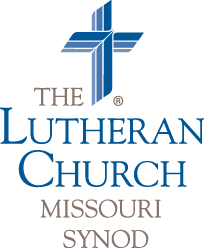Worship
Sunday’s Divine Service W/ Holy Communion
at
8:00 AM & 11AM*
*Coffee Fellowship after service
Thursday’s Daily Lectionary Meditation W/ Communion at 11:00AM
We live-stream our services online at
*You do not need a Facebook Account to watch!
If you would like to give to Prince of Peace and our ministries, please click the giving button at the top of this page, or you can mail in/drop off your offering at the church office. Thank you for your support of Prince of Peace and its ministries!
Bible Studies
Sunday’s after the 9:30 AM Service
Topics Vary
About Our Services
At Prince of Peace we use the Lutheran Service Book (LSB) for our hymnal and we rotate through all of the different Divine Service settings. For more information about our confessional and liturgical services, see the description below about “What is Basic in Lutheran Worship” and the description of each part of the liturgy. We want you to be familiar with what it is we believe and why we do what we do here at Prince of Peace.
Special Services During The Year
Thanksgiving Eve Service 7:00 P.M.
Christmas Eve 9:00 P.M. Candlelight
Christmas Day 11:00 A.M.
Advent/Lent Midweek Services
During the Advent and Lenten Seasons we have midweek services on Wednesday night with a supper prior to worship.
6:00 P.M. Supper
7:00 P.M. Service
Holy Week Services (Easter Week)
Palm Sunday 9:30 A.M.
Maundy Thursday 7:00 P.M.
Good Friday 7:00 P.M.
Holy Saturday/Easter Vigil TBA
Easter 9:30 A.M.
with Breakfast and Easter egg hunt afterwards
What is Basic in Lutheran Worship?
What makes a worship service distinctly Lutheran in nature? Some might think the question is improper. Some would say that the "Order of Service" is a matter of personal preference, or adiaphora (indifferent things; things neither commanded nor prohibited by God). Others would answer that Lutheran worship simply reflects a cultural form or style such as Germanic (Germany) or Nordic (Scandanavia). But a Church that has confessional theology and calls itself "Lutheran" will have basic theological norms that bound and mark the service.
The Evangelical Lutheran Church confesses that the article on Justification is the chief article by which the church stands or falls. Ephesians 2:8-9 expresses it best. "For it is by grace you have been saved, through faith - and this is not from yourselves, it is the gift of God—not by works, so that no one can boast" (NIV). The Augsburg Confession in Article IV restates this biblical teaching as the chief article of the Christian faith. This understanding of a Grace-filled relationship between God and the sinner through grace for the sake of Christ accepted by faith is the foundation for any worship in a Lutheran congregation. Lutheran worship, then, must be firmly rooted in the scriptural principle of sola gratia (grace alone).
True worship is Divine Service. The Divine One serves His beloved—that’s humankind! God is the initiator. We are His creatures and we can only receive what our Creator thrusts upon us. True worship gladly receives what God does to us and for us. God reveals and delivers His Love for us thru the “Means of Grace”. The means by which God delivers His Grace to us are: 1) His Word; and 2) the Sacraments. The Word and Sacraments are central to Lutheran worship and all true Christian worship.
Lutherans have understood that God’s Word is expressed in the twin poles of Law and Gospel—a concept communicated both by Dr. Martin Luther of Germany and Dr. C.F.W. Walther (a German immigrant to America and the first president of the LCMS). Therefore, worshippers will, at various times during the service, feel the crushing blow of the Law and the Life-giving restoration of the Gospel. Law and Gospel are central to Lutheran worship and all true Christian worship.
The Confessions of the Evangelical Lutheran Church clearly state that the Mass (order for the Sunday Service of Word and Sacrament) is retained. The Augsburg Confession XXIV says, “Falsely are our churches accused of abolishing the Mass; for the Mass is retained among us and celebrated with the highest reverence.” And the Apology of the Augsburg Confession XXIV says, “We do not abolish the Mass, but religiously maintain and defend it. For among us masses are celebrated every Lord's Day and on other festivals.” The mass form is not culturally biased to one group. In fact, most of the material found in the mass form is a direct quotation or paraphrase from Scripture.
What would such a service look like in its barest essentials? *
1. Invocation in the Name of the Triune God
2. Confession and forgiveness
3. Psalms, praise, and music with words based on Scriptural themes
4. Reading of the Word of God (according to a pericopal or lectionary system)
5. Exposition of the Word of God (sermon)
6. Prayer for all types of conditions
7. Offerings of the people
8. Preface and Consecration of bread and wine with the Words of Institution; Reception of the Sacrament of the Altar
9. Dismissal with the Lord's blessing (benediction)
* This list is provided so Lutheran leaders can ensure they include the essentials in each worship service. Once you have mastered the essentials you can insert supplements and introduce variations appropriate for the local context.
Are there basic ingredients in a worship service that mark it as distinctly Lutheran? Yes. A Lutheran worship service is one that is built on the article of justification by grace through faith. It is centered in the reading of the Word (scripture and sermon) and the administration of the sacraments. It is a service that expounds the Word of God as both Law and Gospel. It follows the mass form inherited from many cultures of the past twenty centuries. These are what's basic to worship that can be called "Lutheran."
This statement is recommended to the parishes and people of the Lutheran Church-Missouri Synod as a guide and a discussion piece. It may be photocopied as needed.
